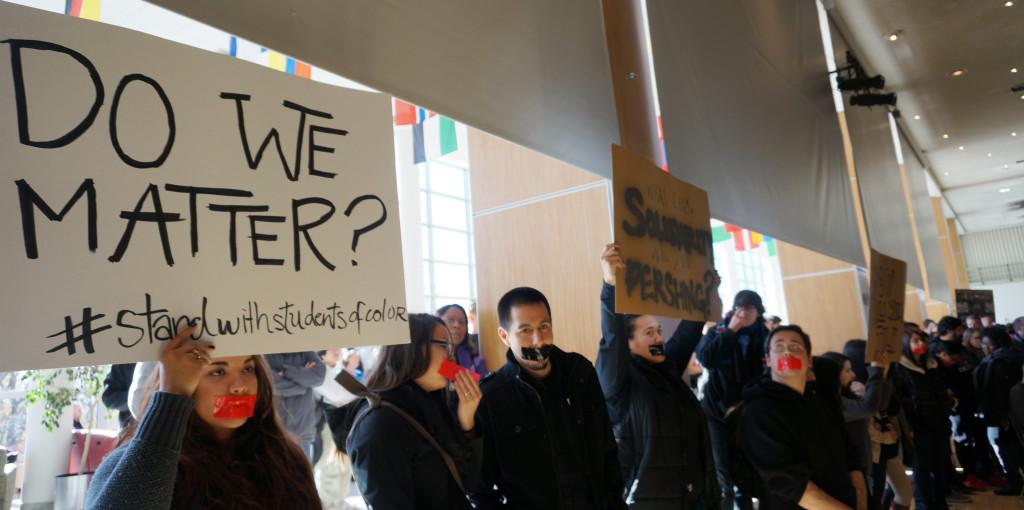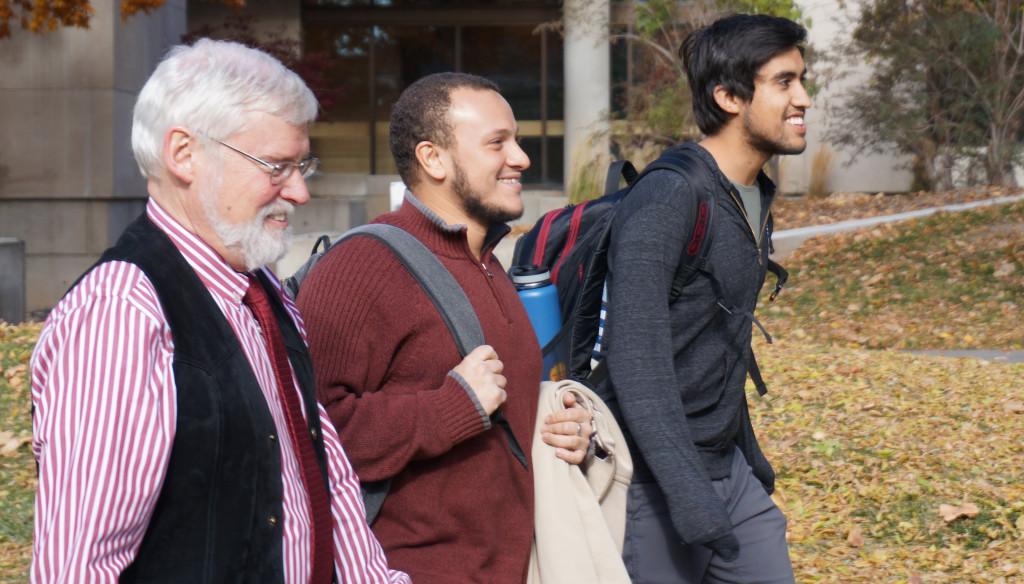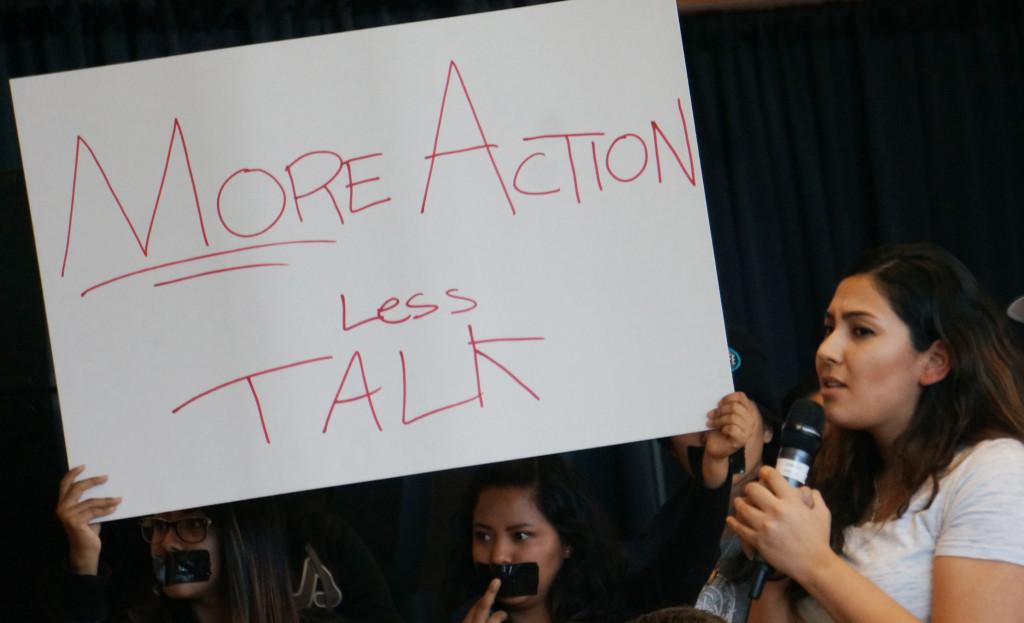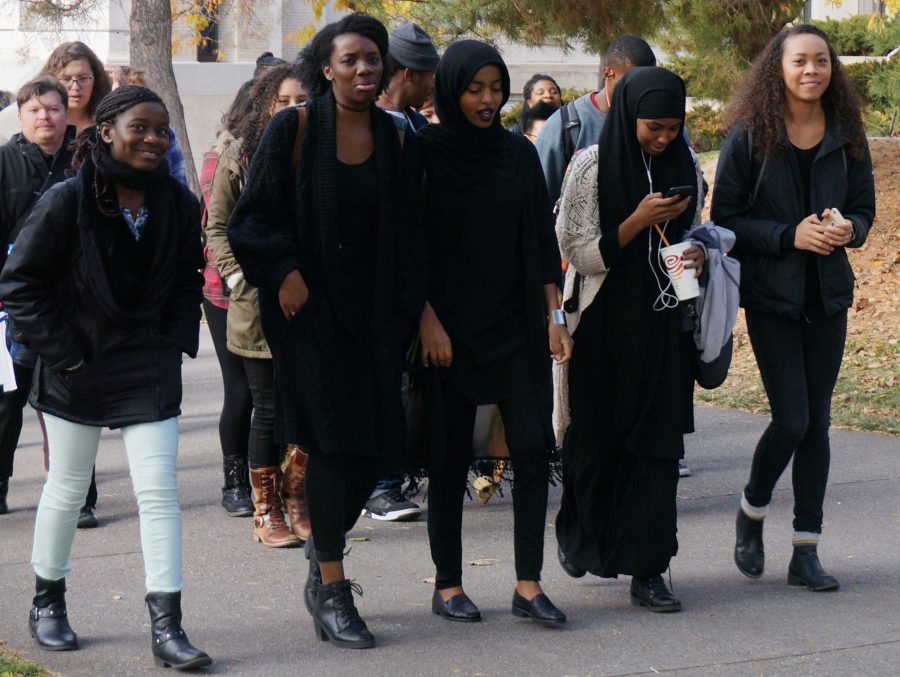More than 500 U students and community members participated in a “March Against Racism” and forum Friday.
Racial underrepresentation, white privilege and insensitivity were major themes throughout the discussion, which began where the march ended in the Union. The ballroom overflowed with students who took turns voicing their thoughts and questioning administrators. Many brought signs and banners, and some wore tape over their mouths to represent students whose voices have been silenced.

“We’re tired of having to wait for misfortunes and violence to happen in order to have you remember us. We’re tired of fighting for tiny, insufficient scraps the university has hesitantly given us,” said one student. “We are here in silence because this university has silenced us.”
“I benefit from racism that exists in America, every day,” said another student. “I say, very sincerely, check your privilege.”
Leaders of the Black Student Union presented a list of demands, which included more scholarships and facilities for students of color, racial sensitivity training for staff and additional recruitment and retention of black faculty. Native American students described the insensitivity of a Ute mascot and having buildings sponsored by companies who damage the environment.
U President David Pershing led the march. He joined in on chants of “justice” on the way to the Union and participated prominently in the forum discussion.

“Today we tried to listen,” Pershing said. “We do have many programs going on, but they’re not enough, and we know that. But we got good ideas today.”
Pershing was joined by Debra Daniels, the director of the U Women’s Resource Center, and Kathryn Stockton, vice president of equity and diversity. Each spoke briefly before opening the discussion.
Pershing explained that administration cannot build all desired facilities because funding has been spent, and one audience member called out, “Yeah, on your vacation.”
Bryan Hotchkins, a postdoctoral research associate at the U, participated in the march.
“Last year there were 113 black students that graduated,” Hotchkins said. “Someone needs to be incensed about that in administration … either people are not doing their jobs or there is not a concern to have more black students.”

Matthew Nopah, a senior in chemistry, also participated in the march and forum.
“Being Native American, I wanted to be part of something,” Nopah said. “If I show other Native Americans that I’m here, it can help motivate others.”
Nopah doesn’t think there are significant racial problems on campus but said that some Native Americans do feel lonely or singled out, and he hopes the U can continue working towards racial harmony.
The U’s event comes following several weeks of discussions and protests at campuses across the United States. Students at the University of Missouri held demonstrations that led to the resignation of the school’s president and chancellor. Perceived racial injustices have spurred similar protests at Harvard, Yale and the University of North Carolina. U administrators emphasized that there was no racist event that triggered the march, just a desire to understand the student body.
The march began at noon, and the meeting concluded at 1:30 p.m. The forum was the first event in a planned series of discussions focusing on societal issues at the U.
m.bateman@dailyutahchronicle.com
@mbatman72


